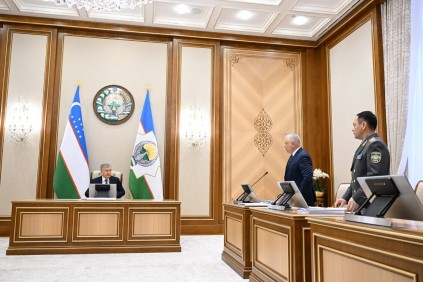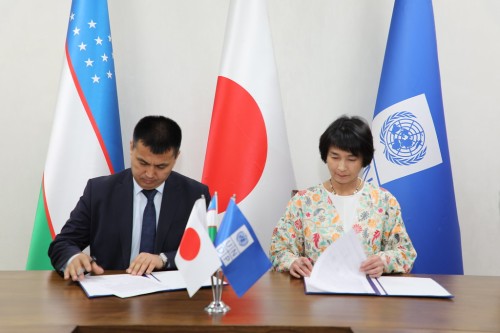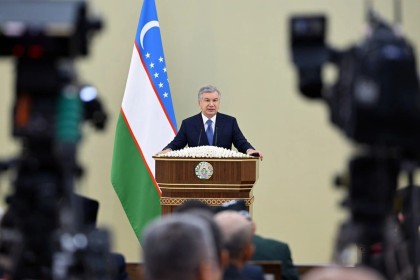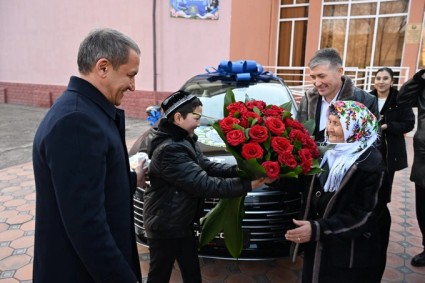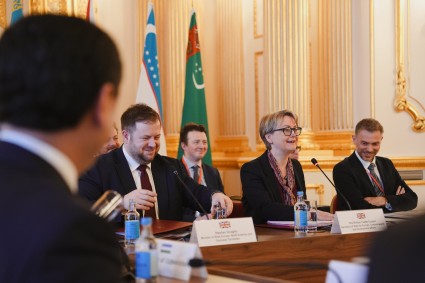The Government of Uzbekistan in close cooperation with the United Nations Development Programme are developing an Integrated SDG Financing Strategy that accelerates progress in ending poverty, protecting the environment, and achieving all the 16 national Sustainable Development Goals (SDGs). Today’s round table event provided a platform to discuss main national priorities with Government and development partners and present an outline of the Integrated SDG Financing Strategy for Uzbekistan.
Financing the SDGs requires significant public and private investment to accomplish these goals and ensure that by 2030 everyone on the planet enjoys peace and shared prosperity. At the same time, financing the SDGs can bring substantial benefits for economy by opening up US$ 12 trillion of market opportunities, creating 380 million new jobs, and saving about US$ 26 trillion by 2030 through taking action on climate change.
According to DFA Report estimates, to meet the national SDGs, Uzbekistan needs at least an additional, annual investment of USD 6 billion and an additional external financing of about USD 4 billion, or 7 percent of GDP, to address the external shock and the domestic impact of COVID-19.
In order to strengthen planning processes and overcome existing impediments to financing sustainable development in the country, UNDP Uzbekistan has started elaborating the Integrated SDG Financing Strategy. The strategy aims to help the Government to recalibrate the financing flows to accelerate achievement of the SDGs.
In his opening remarks, Mr. Ilkhom Norkulov, First Deputy Minister of Economic Development and Poverty Reduction of the Republic of Uzbekistan, noted that “the changing financial landscape complicates financing issues and makes it important to apply strategic approaches to centralized management of financial flows and other resources. One of the effective mechanisms for solving the problem of limited financing instruments is the development of a comprehensive strategy that would clarify how the entire financial system can be linked to sustainable investments.”
As Resident Representative of UNDP Ms. Matilda Dimovska said: “Globally, UNDP has started to help the governments in establishing the Integrated National Financing Framework. This work is being undertaken in more than 60 countries and Uzbekistan is one of them. INFF is a framework that will help to ensure alignment of planning and financing processes, help mobilizing and channelling additional resources to sustainable development, create effective monitoring and governance mechanisms.”
Mr. Obid Khakimov, Director of the Center for Economic Research and Reforms (CERR) in his presentation noted the importance of integrated approach to financing long-term development agenda. Mr. Tim Strawson, SDG Finance Specialist at UNDP presented best practices of selected countries in establishing INFF to identify which practices and tools could be replicated in Uzbekistan.
According to UNDP’s international expert Mr. Nelson Stratta, “The Integrated Financing Strategy will help the Government implement coherently the long and medium-term reforms that are backed by adequate public and private financing, including new and innovative financing solutions. This Strategy must also define appropriate means for monitoring and reviewing its implementation and innovative governance and coordination arrangements.”
The conference helped bring together all stakeholders engaged in financing for development process and initiate a dialogue to identify the country’s long-term sustainable development priorities, country-specific challenges, government financing opportunities, and expectations from the Strategy.


